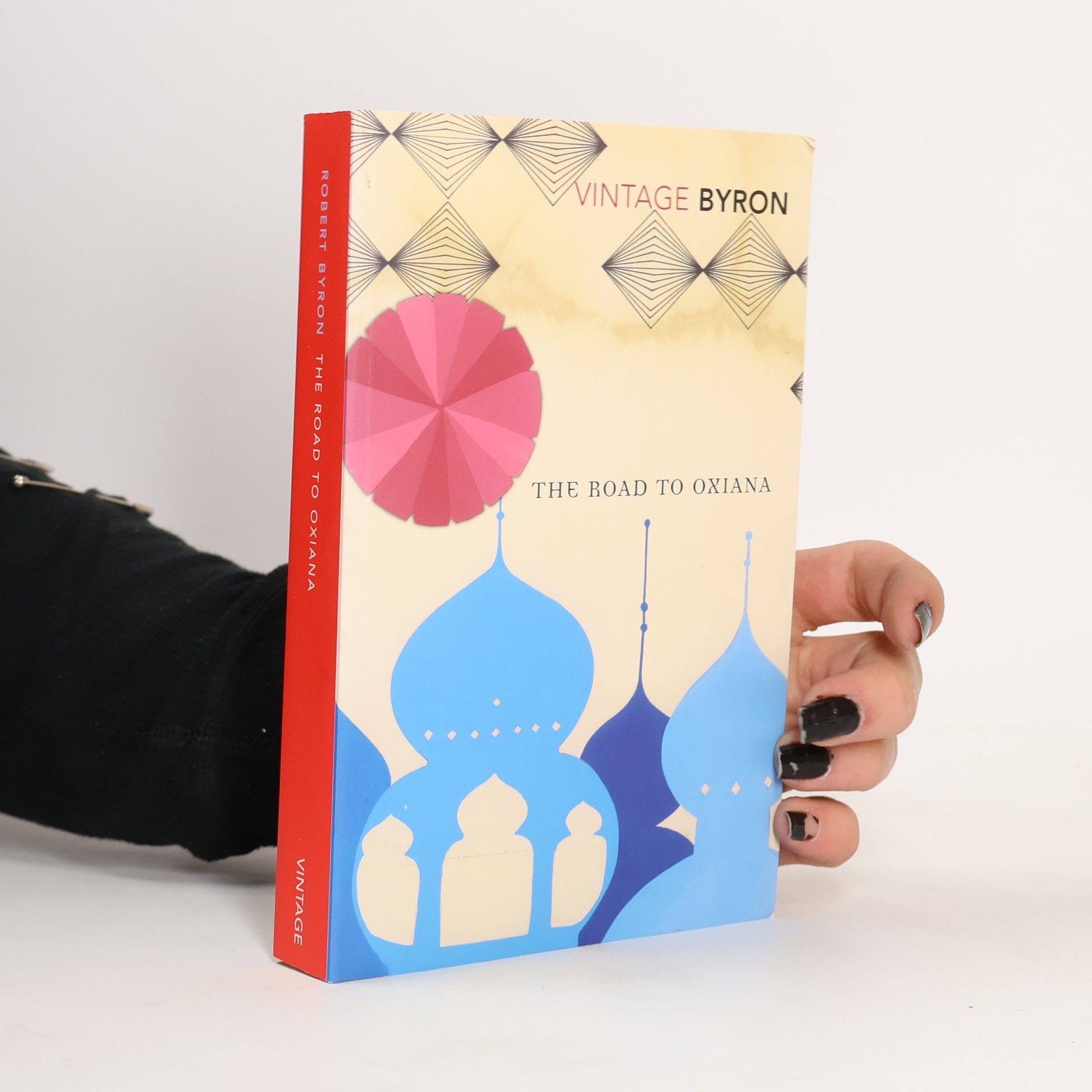The Station
- 290 pages
- 11 hours of reading
The Station follows three high-spirited young men as they visit twenty monasteries on Mount Athos in 1927.
Robert Byron was a British travel writer whose works are celebrated for their penetrating insights and refined style. His literary legacy is strongly tied to the travelogue, wherein he explores not only geographical landscapes but also cultural and architectural heritage. Byron's style is characterized by precise observation and a deep understanding of history and art. His writings continue to inspire readers today with their original perspective on the world and emphasis on beauty and the preservation of historical monuments.






The Station follows three high-spirited young men as they visit twenty monasteries on Mount Athos in 1927.
Aus dem Englischen von Niklas Hoffmann-Walbeck, mit einem Nachwort von Wieland Freund
Auf dem heiligen Berg Athos ist die Zeit seit dem byzantinischen Reich stehen geblieben - von dort berichtet der exzentrische Klassiker der europäischen Reiseliteratur mit scharfer Zunge und britischem Witz. Im Privatabteil eines Nachtzugs durch Frankreich und in der ersten Klasse eines Dampfschiffs von Marseille weiter nach Piräus: Robert Byron reist standesgemäß. Er ist gerade 22 Jahre alt und hat soeben sein erstes Buch veröffentlicht, Europa 1925, für das er sich auf die Grand Tour von London über Deutschland und Italien bis nach Griechenland begeben hat. Noch immer steht er ganz unter dem Bann der Eindrücke seines Reiseziels, der Schätze byzantinischer Kunst in dem Land, das einst Hellas hieß. Mit Freunden aus Oxford bricht er erneut auf und reist diesmal auf die Athos-Halbinsel, das spirituelle Herz des orthodoxen Christentums
Der Weg nach Oxiana ist Byrons Klassiker. Das Buch seiner ersten Reise haben wir noch nie gelesen. »Diana« tauften drei junge, gebildete Snobs ihren Tourenwagen Marke Sunbeam und machten sich am 1. August 1925 auf den Weg – von Grimsby im nordwestlichen England über Oxford, London nach Hamburg und durch Deutschland nach Athen. Italien und das klassische Griechenland hatten sie als Ziel vor Augen, eine Variante der traditionellen »grand tour« – dazu Alltagsleben. Unter den drei Dandys ein Nach-komme von Lord Byron, der gerade 21-jährige Robert Byron, der 1937 sein viel gerühmtes Reisebuch Der Weg nach Oxiana veröffentlichen wird. Bereits sein erstes Buch Europe in the Looking Glass von 1926, das nun erstmals ins Deutsche übertragen vorliegt, macht Byrons bemerkenswerte Begabung sichtbar: die Kenntnis von Geschichte und Architektur, seine scharfsinnige Beobachtung von Land und Leuten, seine Ausdruckskraft, seinen Stilwillen und die selbstsichere Urteilskraft.
A History of Colour, Form and Iconography
Byzantine art is explored as a vital part of the broader narrative of European painting, highlighting its influence on the evolution of artistic styles. This groundbreaking work, first published in 1930, presents scientifically established theories that were previously speculative, making it a significant contribution to the history of European art. The book emphasizes the interconnectedness of artistic movements and the lasting impact of Byzantine aesthetics on later developments in painting.
Bruce Chatwin annotò che la sua copia personale di un libro amato, ormai consumata da viaggi in Asia centrale, lo accompagnava sin da giovane. Robert Byron, gentiluomo erudito e scrittore di viaggi, ha scritto opere significative sulla civiltà bizantina e l'architettura islamica, ma il suo talento si manifesta al meglio nelle sue esplorazioni. Negli anni Trenta, un periodo d’oro per la letteratura di viaggio, Byron scrisse un'opera che si distingue come un capolavoro: il suo viaggio verso l’Oxiana, un luogo mitico tra Afghanistan e Iran, evocativo di un antico paradiso. I viaggiatori possono seguire le orme di Alessandro o Marco Polo, ma la vera avventura è quella di Byron, che parte da Venezia e attraversa Cipro, Palestina e Siria. Ciò che incanta nel suo racconto è la sua straordinaria capacità di osservare le tracce delle civiltà passate e i personaggi che incontra lungo il cammino. Le sue annotazioni rivelano un spirito anglicano e snob, perfetto per descrivere le incongruenze storiche che emergono in episodi esilaranti. Le sue pagine catturano l'essenza del viaggio, quando partire era un vero piacere. Il libro fu pubblicato per la prima volta nel 1937.
In 1933 the delightfully eccentric Robert Byron set out on a journey through the Middle East via Beirut and Jerusalem.